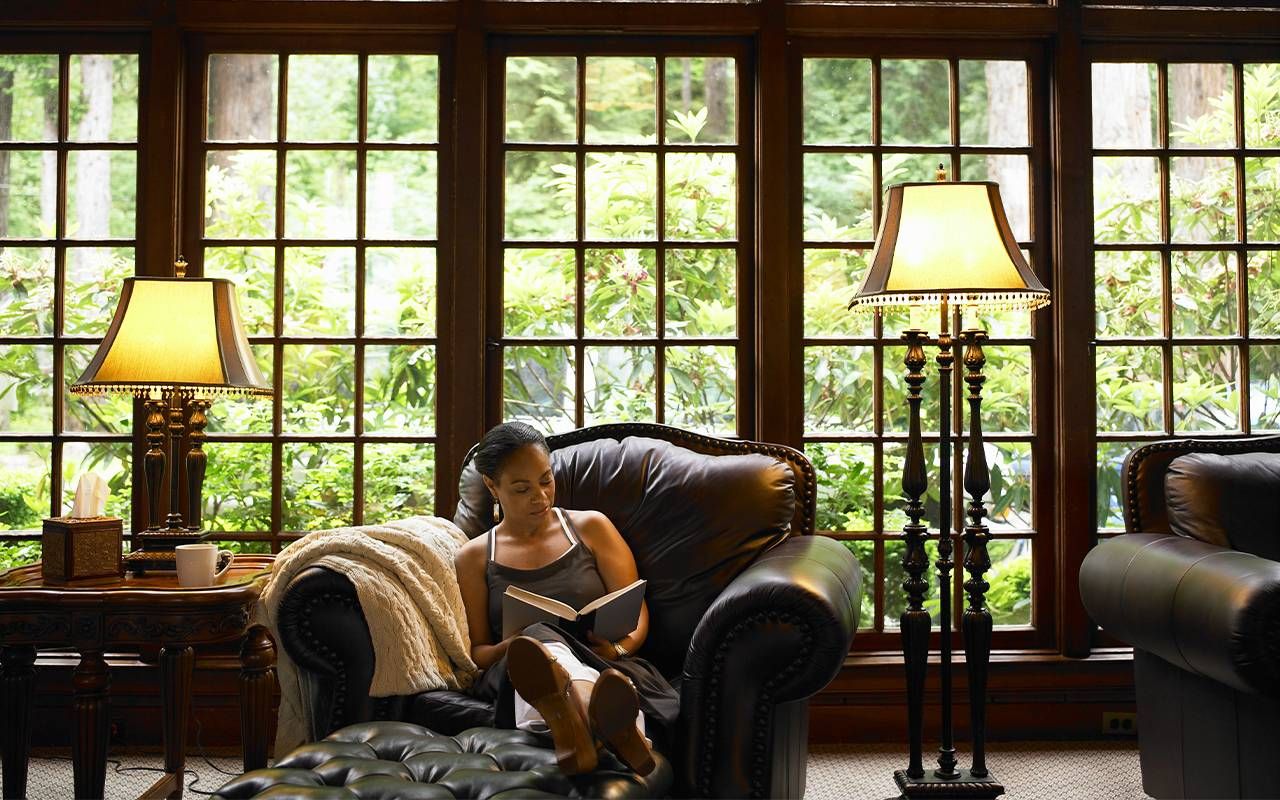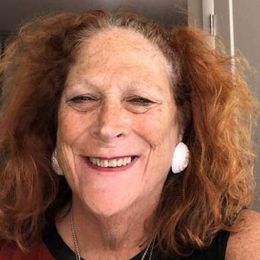Take the 'Read Harder Challenge' and Fall in Love With New Books
The website Book Riot wants you to 'read harder' by exploring books outside of your typical reading choices

Now that I'm (mostly) retired, I probably read about 75 - 80 books a year. I write down the titles and number them in my little reader's journal, and when we're nearing the end of the year, I try to read shorter books to see if I can make it to a hundred.
To me, there's no greater joy than sprawling on the couch, a purring cat on my belly, and diving into a new tome. (And yes, my books still have spines and covers, just like in the olden days.) As a former nurse and psychotherapist, I've always been a fan of medically themed books.
I began with Nurse Nancy, a 1952 Little Golden Book that actually contained three real band-aids, moved on to Sue Barton, Student Nurse, and Cherry Ames, Flight Nurse, and from there progressed to reading memoirs by doctors, nurses and people living with a disease or disability. I'll read an occasional mystery, but usually there's a psychologist or physician starring as the stalker or the one being stalked.
To me, there's no greater joy than sprawling on the couch, a purring cat on my belly, and diving into a new tome.
Book Riot is a (mostly) free site, visited monthly by three million readers and jam packed with a wealth of information for everybody who loves books. There's information about new releases, recommendations for readers of every ilk, lots of literary chatter and current news about the worlds of authors and publishing. The site prides itself on its diversity and inclusiveness, and there's something to appeal to everyone.
There are specialized newsletters ranging from reading materials on literary activism (with lots to read about supporting libraries and ending book bans) to "Our Queerest Selves" (with info about queer historical fantasy novels, queer literary icons, and very cool articles including "What a Drag Story Hour Really Looks Like") to "Better Living Through Books" focusing on self-help literature, personal finance and relationships.
There are weekly podcasts about new book releases, interviews with authors and more. If you want to spend a little bit of money, you can sign up for TBR, their book subscription service with tailored-for-you book recommendations, always sent with a personalized note, because, according to Book Riot, "there's nothing as magical as a perfect, surprising recommendation from someone who just gets you."
The Read Harder Challenge
Book Riot's "Read Harder Challenge" encourages you to explore books outside of your typical reading choices, with different kinds of characters, formats, settings and genres, and gives 24 tasks, two per month, to complete during the year. (Yup, you might have to play catch up, but there are worse things in the world.)
The task suggestions are wide-ranging. They include reading a romance with neurodivergent characters, a translated book about a country you've never visited, or a historical novel by an indigenous author. You might select a manga or manhaw. (Know what that is? Me neither, but it's on my agenda to find out and read one.)
Maybe you haven't read a picture book since you (or the children you love) were small, so reading one published in the last five years might be eye-opening – the topics covered in books for young readers are not all sweet or pretty these days, with some fairly profound ones dealing with death, autism or having a disabled sibling. And one of the suggested tasks is "Read a book recommended by a librarian."
"Librarians are our unsung heroes. We are trained in reader advisory and how to listen carefully."
Emily Drabinski, President of the American Library Association and Associate Professor at Queens College Graduate School of Library and Information Studies in Flushing, New York, says, "Librarians are our unsung heroes. We are trained in reader advisory and how to listen carefully to what a library visitor tells us about their wants, needs and reading preferences so we can point them in the right direction." (In her book "Genreflecting," Diana Tixier Herald defines reader advisory as "the act of putting people together with the books they love.")
Joyce Saricks, author of "Readers' Advisory Science in the Public Library," says that a successful readers' advisory service is "one in which knowledgeable, nonjudgmental staff help fiction readers with their reading needs." It sounds very similar to the contributors and editorial staff of Book Riot who freely share their own reactions and recommendations.
Reading books in genres you haven't previously read is one of the main suggestions in the "Read Harder Challenge." I could write a book now (I wish!) about genres, because I learned so much while reading about them. (Actually, that's another one of the challenges — reading a book about media literacy or reading a book about books!)
Experts agree that there are about fifty book genres, with many more subgenres. Genres fall into two major categories: fiction and nonfiction. Fiction, which includes novels, novellas and short stories, is generally leisure reading, meant to be savored for pleasure rather than to garner information or knowledge. (Although I must admit I've learned a lot from reading medical mysteries, including the best way to kill someone while making it look like an accident. It's information that's nice to have, although I imagine I'll never actually use it.)
Romance/erotica novels and crime/thriller fiction (talk about opposites!) are two of the most popular genres. Other fiction genres include graphic novels, young adult, mysteries and women's fiction, formerly known as "chick lit." (I'm a sucker for Jodi Picoult, Sophie Kinsella and Jennifer Weiner.) Apocalyptic fiction is a subgenre of science fiction (which is a subgenre of fiction, of course) and dystopian novels such as "The Hunger Games" are also usually considered to be subgenres of science fiction. Nonfiction genres include books about history, food and drink, memoirs, religion and spirituality.
Finding Books You'll Love
"Browsing is an experience that is full of serendipity and surprise," says Drabinski, a rabid browser herself who confesses she loves to hold, touch, and even smell the books while making her choices. But, she says, not everyone has the patience or the desire to poke around in a library or bookstore until something catches their eye.
People have their set ways of finding books to read, which might mean reading book reviews in newspapers or on the numerous websites that give targeted book recommendations, or asking friends or family what they have read and loved recently. Of course, most readers have favorite authors and will devour that writer's new book as soon as they get their hands on it.
It's important to keep our brains healthy and prevent cognitive decline by trying new and different things, or doing our old and favorite activities in modified ways.
As I'm working my way through the 24 tasks, I'm trying some methods that are new to me as far as finding books goes, which is actually part of the fun. I've discovered there are many types of books that I have barely explored, and many sections of the library stacks that I've never even approached in my 60+ years of being a voracious reader. As a result, I've actually fallen in love with a collection of essays that I probably never would have picked up on my own.
It's important to keep our brains healthy and prevent cognitive decline by trying new and different things, or doing our old and favorite activities in modified ways. The "Read Harder Challenge" is a perfect example of something that is good for you and fun to do, and it just might open some doors that have unimagined treasures lurking behind them.


